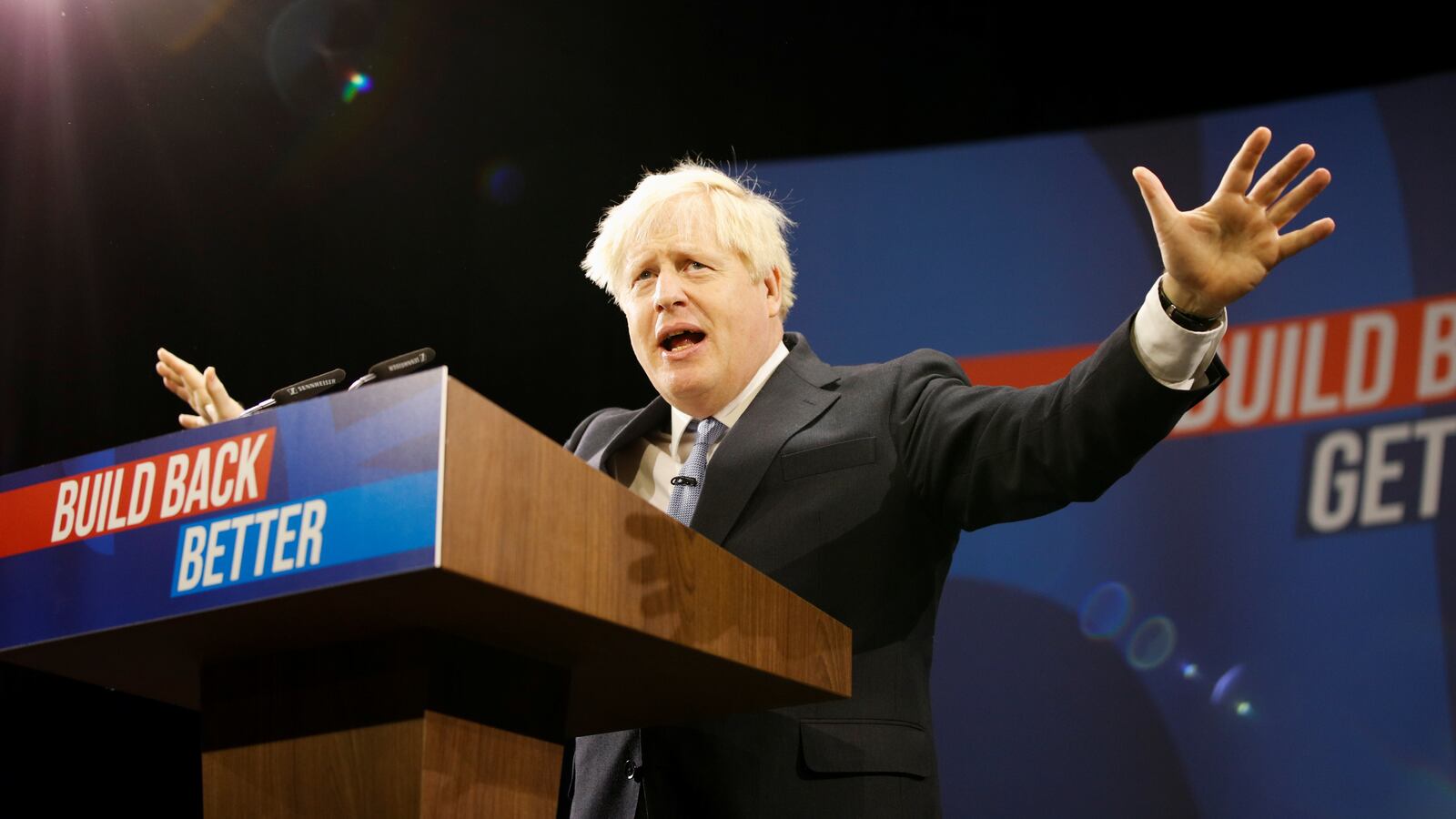So far, the story of post-Brexit Britain has been one of shortages. Europe has been united in schadenfreude as it’s watched furious British drivers line up for miles to fill their cars, huge gaps have emerged in supermarket shelves across the country, and a big surge in natural-gas prices has left people panicked about how they’ll heat their homes in winter.
So it’s no surprise that, when Prime Minister Boris Johnson delivered his annual keynote speech to set out his plans for the next year, he overlooked the Brexit mess that he created, and instead tried to comfort his audience by telling them that Winston Churchill was definitely not racist.
In the section of his speech that got the most enthusiastic reception from the audience of Conservative party delegates, Johnson defended the wartime PM from people who have correctly described Churchill, who admitted himself that he was a white supremacist, as a racist.
“When they began to attack Churchill as a racist, I was minded to ignore them as it was only 20 years ago that BBC audiences voted him the greatest Briton of all time,” said Johnson. “He helped defeat a regime, after all, that was defined by one of the most vicious racisms the world has ever seen.”
The PM added: “But... it has become clear to me that this isn’t just a joke... We really are at risk of a know-nothing, cancel-culture iconoclasm. We Conservatives will defend our history and cultural heritage, not because we’re proud of everything, but because trying to edit it now is as dishonest as a celebrity trying furtively to change his entry in Wikipedia.”
In Britain, political conference speeches are usually where leaders announce their latest flagship policies—but Johnson’s speech contained just one policy about paying teachers more in underprivileged areas. He also only briefly addressed the ongoing shortages of food and fuel that have been in part caused by a post-Brexit exodus of European truck drivers.
The PM claimed the shortages are evidence that the economy is reawakening after the slowdown from the COVID-19 pandemic. On drivers, he said he’ll “control immigration to allow people of talent to come to this country,” but explained that his priority is to encourage British people to take up new careers in truck-driving by investing in facilities such as toilets.
“The truck stops, to pick an example entirely at random, with basic facilities so you don’t have to urinate in the bushes,” Johnson said. “That’s the direction in which this country is going now—towards a high-wage, high-skilled, high-productivity, and yes, thereby a low-tax economy.”
Johnson went on to argue that better transport links, broadband connectivity, and an end to mass immigration would increase wages.
The theme of the speech was “build back better”—a slogan that Johnson used in a series of puns to highlight his conservation projects and increased meat exports from the country, telling the audience Britain was going to simultaneously “build back beaver” and “build back burger.”
Ending the speech that was almost entirely devoid of policy, he said British people should take inspiration from the England football team, British Olympians and Paralympians, and U.S. Open winner Emma Radacanu as examples of what Brits can do when they put their minds to it.
He said: “That is the spirit that is the same across this country, in every town and village and city, that can be found in the hearts and minds of kids growing up everywhere and that is the spirit we are going to unleash.”





